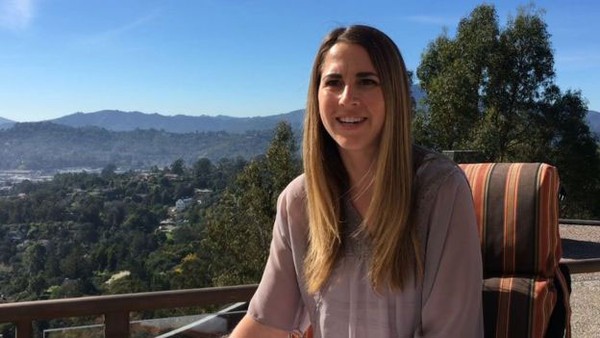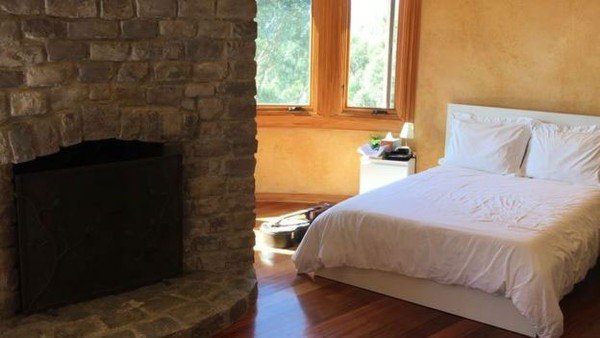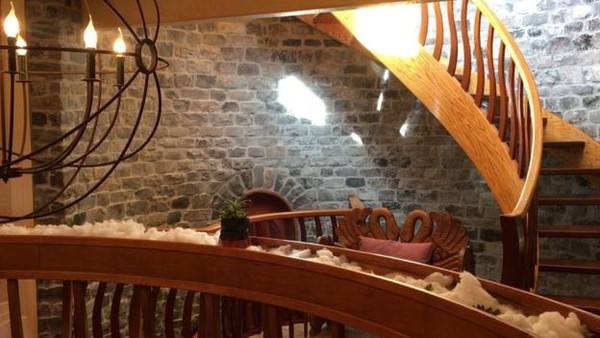The clinic in the US where millionaires 'disconnect' kids addicted to cell phones and the internet
Most Brazilians would need to borrow heavily to buy an iPhone X, sold in the country for almost $ 8,000. In the United States, however, there are those who pay more than $ 300,000 (or 40 new iPhones) just to keep their children away from the device.
Over the past five years, as cell phone access has grown, dozens of rehab clinics have emerged around mega companies such as Facebook, Twitter, Apple and Google in Silicon Valley, offering specific treatments for youth who spend up to 20 hours a day staring liquid crystal screens.
This is the case of Paradigm, a mansion surrounded by gardens and security cameras at the top of a hill in San Francisco, facing the Golden Gate Bridge, the region's main postcard.
Technology 'addicts' use app, game and cell phone like drug
TEST: Are you dependent digitally?
As in the more exclusive California neighborhoods where movie stars and high-tech executives live, there are no sidewalks on the road that leads to the clinic, which houses children and teenagers ages 12-18 admitted by their parents to quit through the Internet.
Paradigm hosts only eight youths simultaneously, in compulsory hospitalizations that last for an average of 45 days, and can reach 60 depending on the degree of dependence and associated factors such as depression, anxiety and aggression.
The daily value impresses as much as the luxurious salons and hot tub overlooking the rising sun at the bay: $ 1,633 ($ 5,400) a night.

Inside the home, cell phones, laptops and tablets are banned and access to computers is limited to tutoring classes where access to social networks, instant messaging applications and pornography is blocked - and any attempt is closely monitored by teachers and psychologists.
With the right time to wake up, study, dine and participate in a battery of collective and individual therapies, the clinic's promise is to "reprogram" young people so they can rebuild their relationship with technology and re-familiarize themselves with family, studies, friends and "offline" tasks.
"This is the rule," says Danielle Kovac, director of the clinic, to BBC Brazil.
"I would say it's a period of adjustment for the kids. The cool thing is to hear a lot of the saying at the end of the treatment: 'Thank you, thank you for not letting me stay with my phone or on social networks on a computer, I was able to really focus on me. '"
Symptoms and controversies
First quoted by a New York psychiatrist during the early days of the network in 1995, Internet addiction is not an officially recognized disease in the United States.
American psychologists and psychiatrists are divided: for some, addiction would only be a symptom of other syndromes, such as paranoia and depression, not the cause of them. For others, it would follow characteristics similar to other dependencies already recognized, such as alcohol and drugs.
But countries like Australia, China, Italy and Japan officially recognize the problem - in South Korea, for example, Internet addiction has been classified as a "public health problem" and is treated in public hospitals.
In Brazil, the Unified Health System (SUS) offers comprehensive and free treatment for disorders such as depression and addictions to alcohol and other drugs, but does not have specific services on mental issues related to technology.

For Paradigm directors in San Francisco, the Internet can aggravate mood and mental health disorders and serves as a "safe and anonymous haven" that takes young people away from their relationships with the real world in a vicious cycle.
"Often, we see families telling us that they did not even have a meal with their children because they are in Snapchat," says the director of the San Francisco clinic, citing young people who spend up to 20 hours a day on social networks.
She says that the diagnosis of Internet addiction repeats the pattern of other addictions.
"(It is) when it begins to affect other areas of life, such as your social life or school. Often we see falling grades because the kids are on Facebook or on the Instagram all night long, so they can not wake up to go to college nor focus on school work, "he says.
She says some patients come to the clinic after leaving school because of the addiction.

"It is very important for parents to be able to determine parameters, perhaps cut off access to screens, computers, iPads or phones before bedtime or meals, or during school," says Kovac, who advocates hospitalization as best treatment if the parents' attempts fail.
"It's certainly a different feeling of unplanned care, where young people are taken or directed to therapy once a week for an hour, here we get to live their day with them and realize what their standard behaviors are. brings us useful information for treatments. "
Lux
The rooms in the clinic in San Francisco are large and extremely luxurious - reproducing the features found in the homes of most of the young internees.
In one of the rooms, around a fireplace, three double beds spread surrounded by windows facing the sea.
"For me (patients) to know that 'my roommate is here too, maybe for another reason, but we can help each other' is very, very positive," he says. Kovac.
"If they are struggling and do not have the best support structure in the house - this is not always the case, but sometimes it happens - here they are in a kind of built family, which they can access when they leave here as continuous support. "
The clinic also offers activities for former patients and family members, "strengthening ties" and continuing treatment.

Em relação ao processo terapêutico, a reportagem não conseguiu conversar com nenhum dos pacientes. Durante a visita à clínica, no entanto, uma jovem acabava de ser internada - o que foi percebido por gritos e choro alto se espalhando pelo casarão.
Ao mesmo tempo, um rapaz de 17 anos tocava piano e um pequeno grupo se reunia numa das varandas para tomar café da manhã.
A reportagem pergunta sobre eventuais sinais de abstinência da internet durante o tratamento.
"Há um nível de desconforto no começo, como aconteceria com qualquer um em uma situação nova, mas nós temos tanto apoio nesse lugar que usamos isso como informação para sermos capazes de ajudá-los: 'Por que você não me diz por que isso é desconfortável?'. Usamos essas respostas como informação terapêutica", diz Kovac.
A diretora diz que a internação funciona como um botão de "reset" (ou reinício, reconfiguração) nas mentes dos pacientes.
"Depois que eles se desconectarem, vão voltar a acessar Facebook, Instagram, Twitter ou que seja de novo?", pergunta Kovac, quando questionada sobre os objetivos do tratamento.
Ela mesma responde:
"Bem, provavelmente. Mas, se eles estão aqui, um local que afeta as suas vidas, nossa expectativa é que se desconectem por tempo suficiente para que, quando voltarem para casa, estejam prontos para estabelecer limites para si mesmos e para suas famílias também."

A day in 'rehab'
She says that the reaction of young people when they see themselves without the cell phones may surprise.
"There are parents who say their kids will scream when the phones are taken out, but in many cases it's a pleasant surprise, they say," Okay. "Often parents want change, but children want it too. cases they're ready to say, 'Okay, it's weird, weird to me, but I'll leave my phone with my mother and maybe pick it up again when I leave.' "
Before leaving, however, young people are led to face a routine that combines comfort and hard work.
The day at the clinic starts at 7am, when everyone wakes up to have breakfast together. "This may already be a little different from what these young people are accustomed to at home," says the director.
"If there are medications (prescribed by the patients' private doctors), we give the medications at this time," continues Kovac. "We start the day in a positive way, eating a good and balanced breakfast, and then we do a group work, of mutual support, conducted by our team.
After that, young people take classes in school ("schools can send the content they want to be worked on, so they can continue to study while they are here"), then lunch and divide into different working groups.
"There are also recreational activities, which can be gymnastic, climbing, going to the beach ... making the blood circulate and maybe catching a little sun". "They can work coping skills, collaboration, communication, limits or artistic and musical therapy. , says the director.

Dinner is the time for a group discussion about the day, personal goals and expectations for the next morning.
"We then break into more night-time activities linked to relaxation, which can be yoga, acupuncture, meditation, and we sometimes get documentaries."
Facebook Siege
For the director, companies like Facebook, Twitter and Snapchat "certainly know what they are doing so that not only children, but people in general, get stuck with certain things, with certain algorithms for certain purposes."
She asks for more attention to CEOs. "I do not have the answer to how they can do this, but you have to be aware of what is happening to society in general. People are too connected to their phones and the internet."
Less than a month ago, more than 100 experts and international child health organizations urged Facebook to end its newly launched messaging application for children under 13, Messenger Kids.
In an open letter to Mark Zuckerberg, the group called the application an "irresponsible" initiative to encourage young children - who would not have the maturity to have social accounts - to use Facebook.
Messenger Kids was announced in December as a "fun and safe solution" for children to chat, video or chat with friends and family. It is a simplified version of Messenger, which nevertheless requires parental consent before use and whose generated data is not used for targeted advertising.
In response to the open letter, Facebook said that "since launch in December we have heard from parents around the US that Messenger Kids helps them stay in touch with their children and that their children keep in touch with relatives, near or far We have learned, for example, that working parents at night can now tell lullabies to their children, that mothers on business trips are having daily updates of their children while away. "
But the open letter questions the need for Facebook to offer this service. "Children can use their parents' accounts on Facebook or Skype, and they can simply call."
The authors conclude that "it would be better to leave small children alone to develop without the pressures of using social networks." The creation of children in the digital age is hard enough. reach and influence of Facebook to make this work even more difficult. "
While the controversy does not come to an end, Facebook keeps its controversial tools within reach for children and teenagers, and the millionaire clinic for Internet addicts is still full of customers in San Francisco - but only those with parents or guardians who can afford expensive for that.